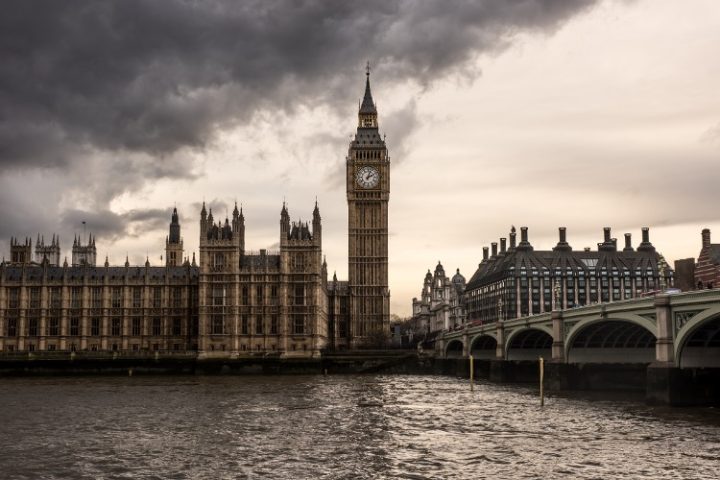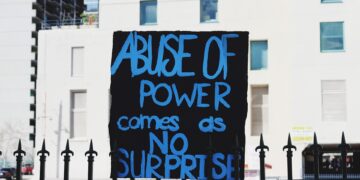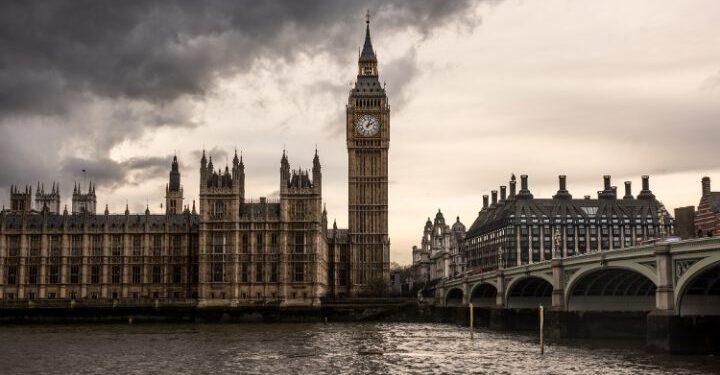
“Britain is now an elite dictatorship where majority opinions are crushed,” wrote the Telegraph last year. That was before, too, the recent imprisonment of Brits for unapproved social-media posts, for, quote, “stirring ‘racial hatred.”
(Here’s the evidence, your honor: Here’s the cup the defendant used. Here, in a hazmat container, is what’s left of the eight ounces of racial hatred he poured in. Here’s the spoon….)
And now the U.K. may have another reason to arrest and charge social media users: “extreme misogyny.” This, we hear, is poised to become akin to terrorism under British law.
It’s all part of an effort to address violence against women and girls. Coming to mind here, too, could be the Southport murders on July 29. That was when Rwandan-descent teen Axel Rudakubana stabbed three little girls to death and injured numerous other people. (The authorities are so concerned about violence against women and girls that they still won’t reveal Rudakubana’s motive. They just insist that whatever it is, “right wingers” are wrong about what it is.)
As to what is, what will constitute “misogyny,” exactly, was not reported. Nor was what will be legal. Is stage 3 misogyny allowable? Middling misogyny? Mild? Three eight-year-old boys saying no girls in the tree house?
And, of course, misandry wasn’t mentioned at all. (In fact, my writing program flags “misandry” as not being a word, but recognizes “misogyny.” Does that speak volumes?)
HuffPost UK reports on the misogyny story. The outlet states that Yvette Cooper, secretary of the Home Office — which is responsible for security, law and order, and immigration — has ordered a “rapid analytical sprint” (leap before you look?) of Britain’s counter-terrorism strategy. Citing the Sunday Telegraph, Huffpo then writes that the government
hopes to be able to “map and monitor extremist trends” and to understand what stops people from becoming radicalised [not orchestrating massive Third World migration into your nation?].
It is part of a wider strategy which will also look at tackling islamist and far-right extremism.
The home secretary’s plans include making it a legal requirement for teachers to refer students they suspect of extreme misogyny to the government’s counter-terror programme, Prevent.
It comes amid growing concern that online influencers, such as Andrew Tate, have been radicalising young boys.
Cooper told the newspaper: “For too long, governments have failed to address the rise in extremism, both online and on our streets, and we’ve seen the number of young people radicalised online grow.
… She said that … she wants to “crack down on those pushing harmful and hateful beliefs and violence”.
… The Home Office has already listed several extremism categories of “concern”, including “incel” (meaning involuntarily celibate), a misogynistic online subculture, but officials fear that does not capture all the nuances of extreme misogyny.
MSN readers opining on HuffPo’s article were quick to point out the flaws in the government scheme. “Terrorist is such an overused term applied to so many countries, organizations and individuals that it hardly has any meaning anymore,” wrote one top commenter.
“And who will determine what is defined as ‘extreme misogyny’?” asked another, rhetorically.
Yet another commenter stated that the strategy was “Another attack on men.” Why’d he write “another”? “This shouldn’t require illustration,” I averred in 2010,
but as evidence I can cite Christina Hoff Sommers’ book The War Against Boys; the continual portrayals of men as dolts in movies, on shows and in commercials; the pieces I’ve written on the subject; 11-year-old student Sam Besserman’s firsthand account; the acceptance of anti-male t-shirts sporting sentiments such as “Boys are stupid; throw rocks at them!”; or products such as the “All Men are Bastards” knife block, which gives the happy housewife the opportunity to keep her kitchen knives handy by sticking them in the body of a male figurine. And these are just a handful of examples.
There also was Sweden’s proposed “Man Tax” in 2004. And years before, feminists in Sweden, Germany, and Australia adopted a new cause: compelling men to sit down while urinating.
One could now ask, “What would happen if the females were the targets of the above?” You needn’t wonder. Consider: Inspired by girls wearing “Girls Rule” t-shirts and sometimes taunting male classmates, boys at a Boston-area grade school years ago donned tops stating “Boys are Good.” It was then — and only then — that there was a protest.
Despite this, not only is misandry “not a word,” but anti-“misogyny” speech laws have long been in the works. Just consider what The Moral Liberal’s Michelle J. Benton wrote in 2012:
England, [and] 18 other nations including Germany and France signed an absurd United Nations treaty about Women that requires them to pass new laws making sexist comments a crime and outlawing “psychological violence,” which they define broadly to include statements “seriously impairing a person’s psychological integrity through coercion or threats.” This is sold to the public as part of a phony campaign against domestic violence.
Don’t expect these laws to be applied any less selectively than the aforementioned social prohibitions, either. This is significant because of what might be the reason for the purportedly increasing violence against females in Britain. An MSN commenter posed a theory on this, too.
“I would bet that the graphs showing this uptick and the uptick in immigration are probably very similar,” he wrote.
Apropos here, Benton asked if a church minister quoting St. Paul on male-female differences could face prosecution under misogyny laws. Good question. Here’s another:
Would the same standard apply to those quoting the Koran on male-female differences?
For sure is that “hate speech,” ever and always, will be whatever contradicts the government’s will.

































